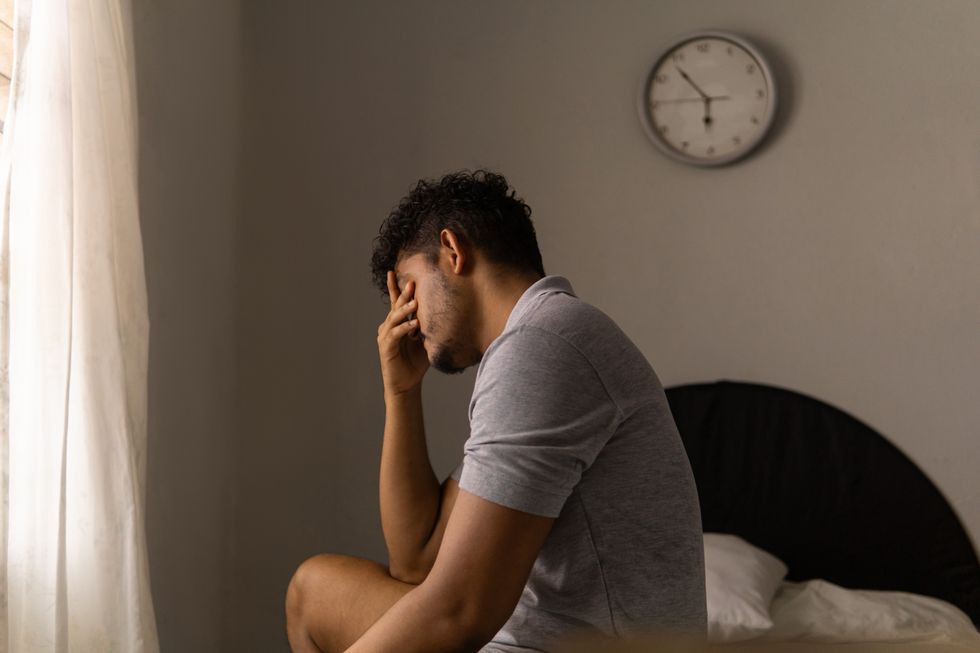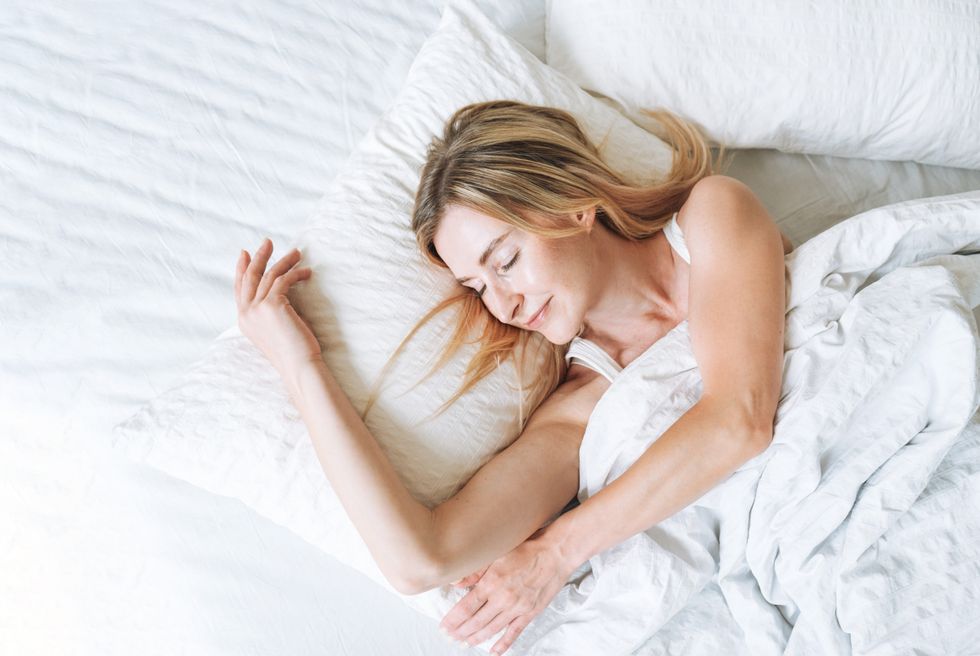Over 30% of people suffer with insomnia
GETTY
Diet, lifestyle, and underlying health factors can all impact sleep
Don't Miss
Most Read
Trending on GB News
Achieving a restful night’s sleep is more than just going to bed at the right time - it’s about building simple, effective habits that support your body’s natural rhythms and set the foundation for deep, restorative rest.
Experts say that adults need on average seven to nine hours' worth of sleep per night however this can feel challenging for lots of people.
Nutritionist at BlueIron, Cara Shaw has told GB News her approach for somebody struggling to sleep.
She said: "For anyone struggling with sleep, I would explore their diet, lifestyle, and underlying health factors to identify possible contributors to their sleep issues."

Being able to get seven to nine hours worth of sleep can be very difficult for lots of people
GETTY
Cara laid out five tips for people to be able to sleep better.
Blood sugar balance
Varying blood levels can disrupt sleep causing night-time wake-ups or difficulty sleeping. The expert recommended: "Including protein (e.g. chicken, fish, lentils) and complex carbohydrates like whole grains in the evening meal. This will help to support serotonin production, a precursor to melatonin, the sleep-inducing hormone."
She added: "Some people may benefit from a small balanced snack before bed; like a small banana with almond butter, which can help to stabilise blood sugar overnight."
Iron levels and energy regulation
Iron is key for oxygen transportation and energy production with both factors impacting sleep quality.
The expert advised: "Add iron-rich foods to your diet like lean red meat, spinach, and legumes."
LATEST DEVELOPMENTS
Stress and sleep hygiene
Creating a bedtime routine is an effective way of unwinding before bed. The expert suggested journaling, a short yoga flow and avoiding screens at least an hour before bed.
The key thing to focus on is relaxation. Cara suggested having: "Magnesium rich foods such as leafy greens, nuts, and seeds to promote relaxation."
Caffeine and stimulants
The expert advised reassessing your caffeine or stimulant intake. She said: "Stimulants can linger in the body for hours, reducing the quality of sleep. Reassess caffeine intake, especially in the afternoon."
READ MORE
- REVEALED: Britain's 'below the radar' plan to help Ukraine defeat Putin without sending a single missile
- 'I'm a GB News Member - here are three ways you can ensure the channel's survival and defend free speech'
- POLL OF THE DAY: Do you want another General Election now? VOTE NOW
- Britain must enact a Trump-style mass deportation policy...and I have a plan for going about it - Adam Brooks
- Nigel Farage just issued stern warning over China but is it valid?

These five tips can help to a better night's sleep
GETTY
Light and sleep hormones
The expert talked about our circadian rhythm and how critical it is for sleep. Our circadian rhythms are the 24-hour cycles that occur in our body, impacting our physical, mental and behavioural changes.
It's important to support this through our melatonin production. The expert advised: "Getting morning sunlight exposure to anchor your sleep-wake cycle and dimming lights in the evening plus avoiding blue light."
These tips can help support you while sleeping but for some people, it can be a mission to fall asleep. Listening to white noise or performing some breathing exercises are two examples of helping us fall asleep.







